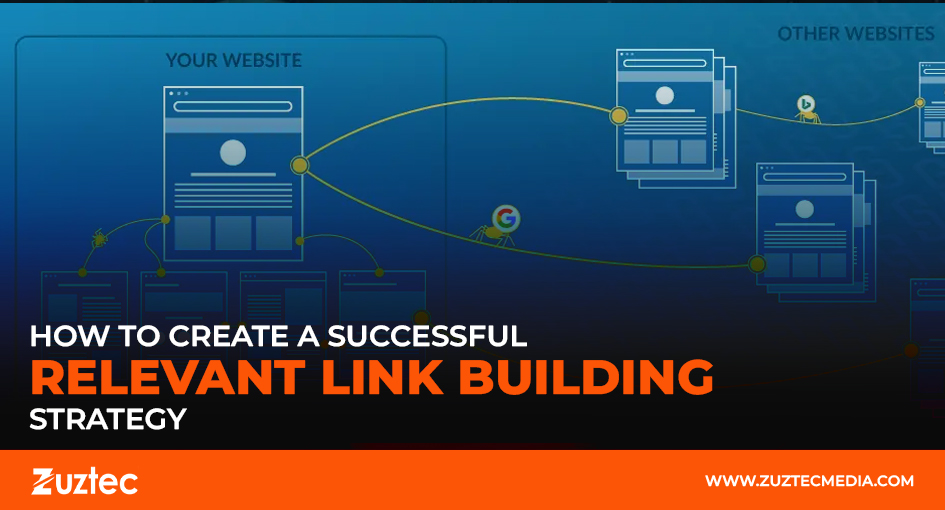
How to Create a Successful Relevant Link Building Strategy
In the ever-evolving world of search engine optimization (SEO), link building remains one of the most effective and widely-used methods for improving a website’s search engine rankings. However, it’s crucial to understand that not all backlinks hold the same value. The quality and relevance of the links that point to your website are key factors that search engines like Google use to evaluate your site’s authority and trustworthiness. While generic links can offer some benefit, relevant link building, which focuses on acquiring links from websites that share your niche or industry, carries far more weight. This is because search engines prioritize backlinks from authoritative, contextually relevant sites, as they indicate that your content is valuable and worth referencing. By focusing on obtaining high-quality, relevant links, you can significantly boost your website’s organic search performance, drive more targeted traffic, and improve your credibility both in the eyes of search engines and your audience.
Building a solid backlink profile can feel like a challenging task, but with a strategic approach, it’s very much achievable. It’s important to create a sustainable strategy that prioritizes high-quality, relevant links over quantity. In this article, we will guide you through the essential steps to develop an effective relevant link building strategy, helping you enhance your website’s SEO and ensuring long-term business success.
1. Relevant Link Building: Understand Your Audience and Niche
Before embarking on any link building campaign, it’s essential to understand your target audience and niche. By knowing who your ideal visitors are, you can focus on securing backlinks from websites that cater to a similar audience or are relevant to your industry. This will ensure that the links you build are not only valuable in terms of SEO but also bring high-quality traffic to your website.
For example, if you run a digital marketing agency, targeting links from authoritative marketing blogs, industry news websites, or business-focused directories will make your link-building efforts more relevant and impactful.
2. Conduct Competitor Analysis
A valuable part of any link building strategy is studying your competitors. Take a look at their backlink profiles using tools like Ahrefs, Moz, or SEMrush to identify the websites that are linking to them. These links can offer insight into which websites in your industry are likely to offer backlinks to you as well.
By understanding where your competitors are getting their backlinks, you can uncover potential link opportunities. From here, you can work on acquiring links from those same sites or look for similar, highly relevant sites where your content may also be a good fit.
3. Create High-Quality, Shareable Content
One of the most effective ways for relevant link building is by creating content that naturally attracts links. High-quality content is valuable to readers, and when it provides real value whether it’s informative blog posts, case studies, or resources it can encourage other websites to link to it as a credible source.
Consider creating evergreen content that provides ongoing value, like comprehensive guides, industry reports, or expert roundups. These types of content pieces are more likely to be shared and referenced by other websites within your niche, helping you build relevant links over time.
Additionally, don’t underestimate the power of infographics and visual content. These are often shared and embedded on external websites, providing opportunities for relevant backlinks.
4. Leverage Guest Posting
Guest posting on relevant blogs or websites in your industry is another proven strategy for acquiring quality backlinks. By offering to write valuable, informative content for other authoritative sites, you not only establish yourself as an expert in your field but also gain a relevant link back to your own site.
When selecting websites for guest posting, ensure that they are reputable and relevant to your niche. The more aligned the website is with your business, the more valuable the backlink will be. When it comes to guest writing, quality should always come before quantity.
5. Utilize Influencer Outreach.
Influencer outreach can be a highly effective method for relevant link building. Identify influencers or thought leaders in your industry who have strong online presences and are likely to engage with your content. Building relationships with influencers can help you get your content in front of a wider audience, and their endorsement may result in a natural backlink from their website or social media channels. When reaching out to influencers, make sure your content is genuinely valuable to their audience. If it aligns with their interests or expertise, they are more likely to share it and link back to your site, contributing to a solid link building strategy
6. Focus on Local and Niche Directories
If your business operates locally or within a specific niche, relevant link building from local and niche-specific directories can be an excellent strategy. These directories are often trusted sources of information, and getting listed in them can improve both your local SEO and relevance.
Search for reputable industry-specific directories, local business listings, and trusted review sites that allow businesses to be featured. Being included in these directories will not only generate relevant backlinks but also increase your visibility among potential customers within your market.
In conclusion, building relevant backlinks is a crucial aspect of SEO that can significantly enhance your website’s authority, visibility, and organic search traffic. By focusing on acquiring high-quality, relevant links, you can not only improve your rankings but also establish your website as a trusted source within your niche. To create a successful relevant link building strategy, focus on understanding your audience, building relationships, and producing valuable content that others want to link to. With patience and consistency, you’ll be well on your way to improving your website’s SEO and reaping the long-term benefits of a robust backlink profile.

